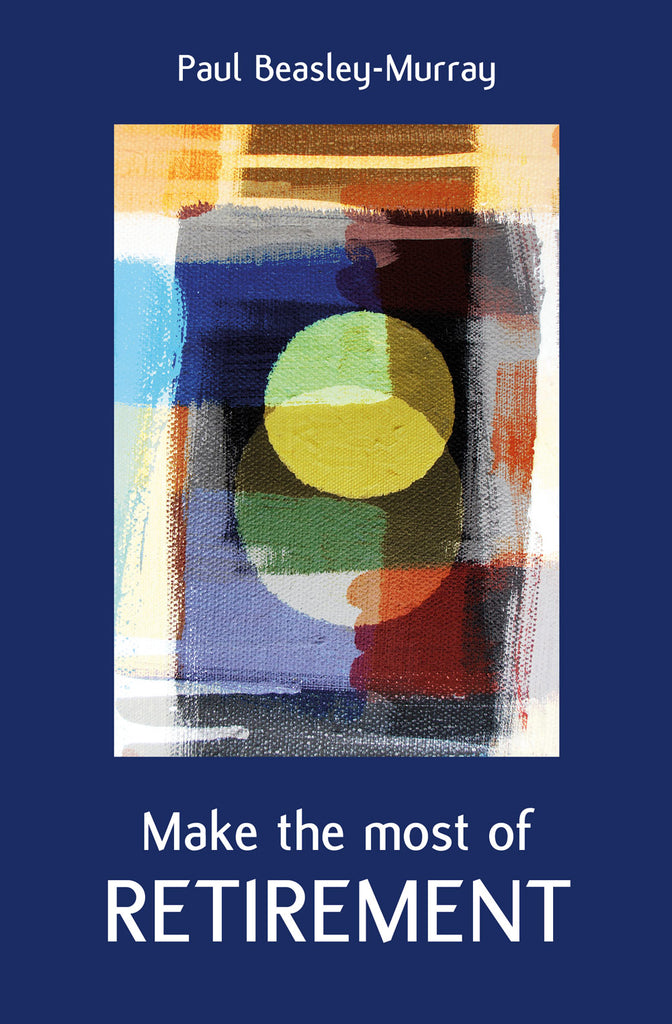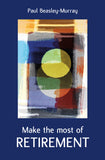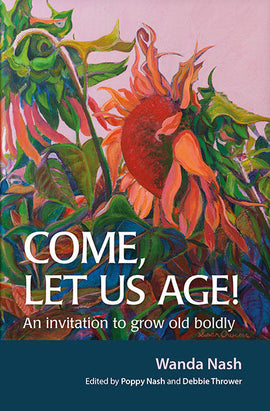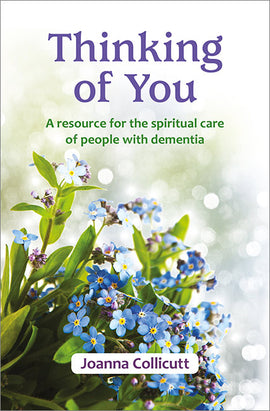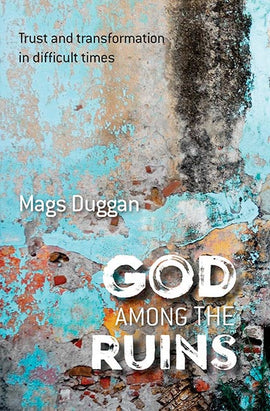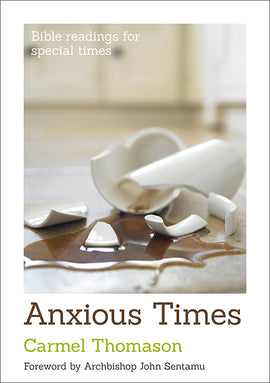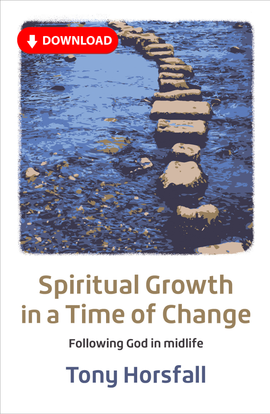Make the Most of Retirement
Living for God into retirement
‘Retire’ means to ‘withdraw’, to ‘retreat’, to ‘give ground’, to ‘cease to compete’. In one sense that is true: retirement does involve a leaving of office or employment. Yet retirement is also about new beginnings and new opportunities. In this helpful book, grounded both in personal experience and in extensive research among retired ministers, and rich in quotations from an eclectic range of writers, Paul Beasley-Murray explores how retirement is part of God’s rhythm for our lives and provides encouragement and insights for this next stage of the journey. A must-read for lay and ordained Christians alike.
| Title | Make the Most of Retirement |
| Author | Paul Beasley-Murray |
| Description | ‘Retire’ means to ‘withdraw’, to ‘retreat’, to ‘give ground’, to ‘cease to compete’. In one sense that is true: retirement does involve a leaving of office or employment. Yet retirement is also about new beginnings and new opportunities. In this helpful book, grounded both in personal experience and in extensive research among retired ministers, and rich in quotations from an eclectic range of writers, Paul Beasley-Murray explores how retirement is part of God’s rhythm for our lives and provides encouragement and insights for this next stage of the journey. A must-read for lay and ordained Christians alike. |
| Details |
|
‘Retire’ means to ‘withdraw’, to ‘retreat’, to ‘give ground’, to ‘cease to compete’. In one sense that is true: retirement does involve a leaving of office or employment. Yet retirement is also about new beginnings and new opportunities. In this helpful book, grounded both in personal experience and in extensive research among retired ministers, and rich in quotations from an eclectic range of writers, Paul Beasley-Murray explores how retirement is part of God’s rhythm for our lives and provides encouragement and insights for this next stage of the journey. A must-read for lay and ordained Christians alike.
Paul Beasley-Murray is the chairman of the College of Baptist Ministers. Formerly Senior Minister of Central Baptist Church, Chelmsford and prior to that Principal of Spurgeon’s College, London, he is a prolific author and blogger. His most recent publications include his autobiography This Is My Story: A story of life, faith and ministry (Wipf & Stock, 2018).
We used to know what 'retirement' meant. These days it is a more elastic term, and particularly so for retired ministers whose calling recognises no distinction between drawing a stipend or a pension.Paul Beasley-Murray presents a practical and engaging guide to retirement. While written with the retiring minister in mind, much of what Paul offers will be of relevance to anyone asking the questions of who they are, and how they might live out their vocation, in the later summer and autumn of their years.
John Ball, Chief Executive, The Church of England Pensions Board
'Like all the writings of Paul Beasley-Murray, this refreshing book is thoroughly researched and generously illustrated from personal experience, and never shrinks from reflecting on the shadow side of this period of life.'
David Coffey OBE, Global Ambassador for BMS World Mission and past President of the Baptist World Alliance
'An invaluable aid for ministers of religion, in particular, and other people, generally, as they prepare for retirement.'
Revd Dr Richard Jackson, Methodist minister and pioneer (in retirement) of the Cliff College International Training Centre
Rural Theology. Review by Malcolm Grundy
Used with permission. Rural Theology, 19:1, 63-64, DOI: 10.1080/14704994.2020.1818404
To link to this article: https://doi.org/10.1080/14704994.2020.1818404
There is now a growing number of books which will help clergy and their spouses to prepare for and live in retirement. Among those recently published the subject is approached from many different angles. Where most guides and helps are produced using a variety of contributors, Paul Beasley-Murray is a sole author giving a very personal account to enrich this pool of resources.
The author writes from a varied ministry in academic work as Principal of Spurgeon’s College, in national and ecumenical circles as Chair of the College of Baptist Ministers, as a missionary in Congo/Zaire and for his final posting as minister at the Central Baptist Church in Chelmsford. His retirement responsibilities and activities would fill more than half a page.
This book, Beasley-Murray tells us, has its origins in a research project with both qualitative and quantitative content published in Retirement matters for ministers. He has already published an autobiography in 2018 and in a similar way this is quite a personal book. It has clear sections beginning with the need for personal and practical preparation for retirement.
This is followed by sections on the discernment of a new vocational purpose. The third section encourages wider thinking and activity and the fourth explores preparation for the ‘final journey’.
The book is filled with practical advice, backed generously with biblical references and illustrations. Equally, each section, and the sub-sections within them point to considerable wide reading and make generous use of quotation and anecdote from others who have written about retirement. Mention of other writers is done with the eye of a critical scholar, ‘I confess that much of the author’s careful engagement with scripture left me cold – it just seemed totally irrelevant’ (p. 75).
There is both strength and weakness in a single author attempting such a broad subject. Beasley-Murray writes in a very personal way in many sections and we learn much about a man who has contributed generously to the ministerial development of so many. He speaks stridently about the need for a retired minister active in a congregation to engage in a ‘ministry of encouragement’ especially being supportive to their own and the surrounding ministers. His own personal public activities are described with reflective enthusiasm. Most intriguing among so much is the description of why he and his wife have chosen to worship not in a local Baptist Church but at Chelmsford Cathedral.
An honest book of this kind will have inevitable weaknesses. Among the helpful practicalities listed are the need to make sure someone had all your computer and bank account passwords and that it is essential to make both a Will and Power of Attorney provision, but do we really need to know what hymns and readings he has planned for his own funeral? For the less biblically focussed there might be a little hesitation within the important need to value and nurture grandchildren, that before opening their presents on Christmas Day, he insists on reading them Luke’s account of the birth of Jesus.
This well-resourced, comprehensive, and individualistic book is a welcome addition to a growing library. It speaks in an assured way to all who need to know about retirement ministries. It will be useful across the denominations to clergy and their families whose lives are shaped and enriched by constant reference to their bibles.
Malcolm Grundy
York St John University
© 2020 Malcolm Grundy
To cite this article: Malcolm Grundy (2021) Make the most of retirement, Rural Theology, 19:1, 63-64, DOI: 10.1080/14704994.2020.1818404
Transforming Ministry (winter 2020) Review by Laura Hillman
Retirement brings opportunities as well as challenges. The author is a retired Baptist minister and former principal of Spurgeon’s college who now worships at Chelmsford Cathedral. He has written a helpful guide with full-time church leaders in mind although he has sound advice for the general reader too. He writes with sensitivity and understanding, drawing on a research project with retired ministers as well as his own experience and the work of a range of authors. While being aware that there are many different models of successful retirement he makes recommendations that are helpful to all. ‘Take time to settle down’, ‘Keep your mind fresh’, ‘Relax and play’ are typical chapter headings. Many will find a new calling in later life, not necessarily church based, although as lay ministers we often come into our own when free from paid employment. This would make a good present for a friend on the point of retirement; it is also a book to return to in the later stages of life with sound advice on preparing for a good death.
Reviewed by Laura Hillman
Baptist Minister’s Journal April 2020. Review by Michael Bochenski
This is a really helpful book. All the more so because it is a rare Christian contribution to retirement studies from a UK perspective, rather than a North American one. Undergirding it are face to face interviews, a lengthy questionnaire, and the author’s characteristic commitment to theological reflection on personal experience. It is admirably practical, very readable, well researched and, yes, really helpful.
Make the Most of Retirement is a book brim full of quotes and references from a range of sources – Paul Tournier, David Adams’ wonderful greeting car reflection The Terminus, CS Lewis, Eugene Peterson, David Winter, Henri Nouwen, Sr Margaret Magdalen, and John Bunyan – among many others.
The book is divided into four sections.
- Beginning a New Journey explores issues such as resolving to continue to develop, settling down, maintaining a spiritual and life discipline, and ongoing relationships.
- Finding New Purpose focuses on issues such as our ongoing call to minister, learning to let go of the past, continuing to ‘… keep our minds fresh with a book always on the go,’ and supporting our new minister/s as ‘angels’ advocates’. Paul has little time for a solely functional understanding of ministry: ‘Ordination’, he affirms, ‘is for life, so God continues to have a call on my life.’
- Living a Full Life contains pleas to find new ways to relax, exercise, reconnect with some of those we have known over the years, cultivate time with grandchildren (if so blessed), and to share our testimony to God in Christ. This section is infused with something of the personal joy Paul has found, after retirement from pastoring a local church and discovering instead ‘…new and changing way of serving God and others.’
- Preparing for the Final Journey does what it says on the tin! Intimations of mortality – not least in the back, hip or knees (!) – are part of this but so are things like alerting our executors in advance to important documents and funeral wishes, confronting past hurts, and looking forward to what lies beyond.
There are no weak sections in the book. Consider, for example, this powerful (Carl Jung) quote on the cruelty of death: ‘Death is indeed a piece of brutality. There is no sense in pretending otherwise. It is brutal not only as a physical event but far more so psychically: a human being is torn away from us, and what remains is the icy stillness of death.’ Or this magnificent quote from the Swiss physician and author Paul Tournier (one of the first pastoral theologians I ever read and still one of the best): ‘What is important for the aged is not what they are still able to do nor yet what they have accumulated and cannot take with them. It is what they are.’
It was especially good to be reminded of the wonderful Nun’s Prayer (Google it!): ‘Keep me reasonably sweet; I do not what to be a saint – some of them are hard to live with – but a sour old person is one of the crowning works of the devil.’ I agree, however, with Paul’s observation on it (note 156): ‘This prayer, often said to be from the 17th century, is more likely to be a 20th century creation.’ It remains of course an excellent tool for tying to live well in old age, whatever its provenance.
Paul’s various reflections on past, present and future ministry are also exceptionally helpful, such as this one: ‘I dare to believe that my ministry has eternal consequences. Precisely what those consequences are I do not know… for the most part we have little, if any, knowledge of what has been wrought in other people’s lives.’ To read someone so clearly continuing to love being a pastor in his seventh decade is so refreshing; it shows: ‘The privilege of having been a pastor… is undoubtedly the most wonderful calling in the world.’ Paul’s awareness of ‘the many different patterns of retirement’ is also welcome. This is, mercifully, not a one blueprint kind of a book; it is instead a very practical guidelines and options one.
A quote from James Woodward takes us to this book’s heart: ‘There is a difference between living and being alive. Growing older is about adding life to years rather than just adding years to our lives.’ Chapter 13 is entitled Become a Sage. On the evidence of this book, Paul Beasley-Murray is clearly practising what he preaches.
Reviewed by Michael Bochenski
Retired Clergy Association newsletter Summer 2020
Review by Mike Parsons
Paul is a retired Baptist minister and probably familiar to many as the Beasley Murray family (father & son) have been prominent in Baptist circles for many years. However, his non-Anglican background should not dissuade any reader as after retiring as senior minister of Central Baptist Church Chelmsford he decided to join the congregation of Chelmsford Cathedral. In fact, he has produced a paper on why retired Baptist ministers end up worshiping with the Church of England. I look forward to a similar one, from somebody, as to why so many retired Church of England priests become Quakers!
This is a slim book, easily read and with a light style. Divided into four sections (Beginning a new journey, Finding a new purpose, Living a full life, Preparing for the final journey) each of which has seven or eight sections, it reads rather like a set of notes to accompany a series of compline addresses or the like. Each one can be read in its own right.
The book takes issue with the idea that retirement is the waiting room for death, a final destination that all arrive at. Rather he sees retirement as the terminus from which you set off on a new journey, ‘it is the beginning of a new journey . . .it opens up new vista, it is the gateway to eternity.’ (quoting ‘Terminus’, a poem by David Adam.)
The book has its origins in a research project to discover how ministers (and he carefully uses this term throughout as the most inclusive) experience retirement; published in his book Retirement Matters for Ministers. Here he discovered that while many retired ministers were glad to be retired and were experiencing new opportunities, a significant proportion felt discarded, undervalued, and reduced in their opportunities in life.
For the former category this book will provide new idea and suggestions as to how to live an even fuller life. Each section is formed round a particular biblical text and is full of examples and illustrations. The book is, in itself, a resource of sermon illustrations! For the latter category there are many challenges. It is not a mere exercise in positive thinking for the retired, but wise godly advice and biblical insights to enable growth. It is also very well referenced so you can chase up his quotes if you wish.
Old age used to be thought of as starting with retirement, 65 as it used to be for men, 60 for women. The government has changed all that (to many women’s disadvantage) to 66 for all. But that is not how we think. From October 2011 there is no mandatory retirement age and, except for the Church of England, retirement cannot be imposed by employers. It has been said that 70 is the new 60; most of us have many more expectations of active life post retirement. The Church of England is lagging behind here. I asked a question in General Synod in 2015 as to what progress there was in changing clergy retirement rules. The reply was that the house of bishops was unaware of any groundswell of opinion: they cannot be so unaware now. In terms of ministry, at least as an incumbent or senior cleric, there is good case for handing on a post by 70 and ministering in some other way. For most of us, that will involve PTO (Permission to Officiate). Progress is being made it terms of positive engagement with the retired, but there is a long way to go. It is demeaning and insulting to make assumptions on behalf of the retired ‘in their best interests’ without consultation. The largest number of active retired clergy in England are in their 80s, a large pool of voluntary ministry.
Retirement is something of a shock to many clergy, we are psychologically unprepared: you go suddenly from being in the centre of everything, consulted, listened to, kept in touch (and how much more so for senior clergy). Then the next day it can seem as if you have been pushed off a cliff and no longer exist. In one chapter he explores the issue of clerical identity; how so often it is centred in our functions rather than who we are in Christ. He quotes approvingly Archbishop Justin Welby, who discovered greatly to his surprise recently that his biological father was not the man he called father but another. This is a discovery which could easily strike to the roots of one’s sense of identity and worth, yet Justin Welby said ‘I know that I find who I am in Jesus Christ, not in genetics, and my identity in him never changes’.
There is much that can be done to prepare for retirement. Most dioceses offer some form of pre-retirement course, but it is often very sketchy and can sometimes do little more than cover the administrative bones of the various options on retirement housing and how will you be paid. This book, in itself, read through perhaps with a small group reaching retirement at similar points will provide a much richer fare. Involving others (and of course partners) will give added perspectives: not everyone’s retirement is the same. Beasley-Murray encourages using a mentor or soul friend. This could also be described as a work consultant for the retired. We may not realise it, but we are now on our own. We don’t automatically have to report to anyone, we can do our own thing. But we’ve not done this before and we know that in starting in ministry there were various people to help and advise: there were also groups where you could moan about how bad the vicar was – and discover fellow sufferers! I believe every diocese has a Retirement Officer, but how much of a voice they have varies widely and, in some cases, very little seems to be done.
We will not be long retired before friends and colleagues start dying (if they have not already) and thoughts of our own mortality become more common. How will we meet it, will we ‘die well’? In his penultimate chapter, ‘Letting go and holding on’, Beasley-Murray paints a picture of death as not only ‘going’ but also ‘arriving’; this is what the Christian should hope for, while acknowledging that the reality is not always like that. Many of us fear the process of dying, fear not just the pain and loss of bodily functions but also the loss of the mind and the personality changes that can come with dementia. There could – perhaps should – have been a reminder here to discuss an end of life plan with family members and how you can ensure that those caring for you at the end are aware of it. This could be part of a small portfolio of preparation. Not just ensuring a will is written, charitable gifts assigned, but also what sort of funeral you would like (always remembering the funeral is mainly for the benefit of those left behind!) as it will both make a statement about your deepest belief and also be a personal growth experience. Who do you most want to be with you as you die?
A H Clough’s famous doublet ‘Thou shalt not kill; but need'st not strive officiously to keep alive’ is not only a palliative care dictum; it is also a spiritual one. Beasley-Murray quotes cases of three experienced charismatic Christian leaders who were convinced they would be miraculously healed: in one case it ended badly, the other two ‘came to the reluctant and dislocating conclusion that’ somehow, they had got it wrong, but were able, peacefully, to let go into the hands of the God they didn’t now understand’.
This is, I have found, a book that repays reading – and then reading again (it’s very short!); there is much wisdom here. Beasley-Murray’s experience is summed up, he writes, in David Adam’s poem
‘The Terminus’:
The Terminus is not where we stay,
It is the beginning of a new journey.
It is where we reach out beyond,
Where we experience new adventures.
It is where we get off to enter new territory,
To explore new horizons, to extend our whole being.
It is a place touching the future.
It opens up new vistas.
It is the gateway to eternity.
Progressive Voices June 2020 (PV33), Review by Stuart Hannabuss
This is a timely book. As in our lives generally, there are seasons of ministry, and Paul argues in this encouraging book that we should make the most of the season of retirement. Paul’s wise advice is optimistic and realistic (and nondenominational), and will find echoes for everyone in the church, not just ‘retired’ pastors and church leaders. Concise and logically organised, this guide sees retirement as ‘beginning a new journey’ and ‘finding new purpose’ and ‘living a full life’. He grounds these themes on firm foundations, intelligently avoiding any ‘goody two-shoes’ tone of voice.
Sensibly, too, and sensitively, he faces up to the challenge of ‘preparing for the final journey’. There are three firm foundations for this advice. First is his own life. Without any egotism, he describes how he has grown in retirement. It has been a period of self-discovery, of reflecting on key values and people that have shaped his life. The second draws on relevant studies and his own substantial research. Often evidence of how faith communities flourish, grow and change is based on unreliable anecdotes and subjective impressions. Having more reliable qualitative data is much needed.
The third foundation is based on the Christian life, where in retirement the importance of discipleship and forgiveness is more central than ever. Retirement can be a time of resentful marginalisation, nourishing past hurts, fearing mortality and bereavement. Paul reminds us that, while it is a time to put things in order and even to ‘let go’, it is also a time to face ‘the challenge of being’, and to seek contentment.
Being honest to God and to yourself as you age and change is probably the most challenging part of the internal narrative we have with ourselves. Paul’s book is all about how a Christian pastor or minister can choose to retire, and, how older people still can do so too. A timely book for personal reflection and group exploration.
Reviewed by Stuart Hannabuss
Reform, May 2020. Review by James Breslin
This book is aimed at retired ministers or, more usefully, at ministers about to retire. It seeks to address a gap in the market, for while there are many general books on retirement, and many books on ministry, there is very little on ministerial retirement. With considerable success, Beasley-Murray manages to blend three elements into one relatively short book. It contains much wisdom. Much of the book is a reflection on and retelling of his own experience of retirement, some is an evaluation of the limited amount of research in this field, and some is the repetition of somewhat anecdotal evidence. It is not a book that will appeal to every retired minister and Beasley-Murray fully recognises that. It is very personal, and, as such, may seem alien to some. All ministers are different, the retired as much as the active. Beasley-Murray says that ‘writing and research is one way in which I seek to live out my calling’. Committees and charitable trusteeships alongside preaching currently fill that role for me. He quotes with approval a comment from an Anglican source: ‘Priests never retire but vicars do.’ Although he himself has chosen to worship in a setting that does not offer regular opportunities for leading Sunday services, he notes that 85% of the retired Baptist ministers who took part in his survey regularly led worship.
Beasley-Murray is not shy of disagreeing with others who have written on retirement, noting that where such writing appears as a part of a general study, the tone has often been negative. This book sees retirement as positive but recognises that this is not everyone’s experience. He is clear that his book should be considered alongside the pre-retirement courses run by many denominations. The author fully recognises the value of such courses but suggests that by their nature they focus mainly on the practical elements of retirement (housing, health, pensions etc) and less on the spiritual dimension.
Reviewed by James Breslin, a retired minister living in Nottingham
‘Plus’, quarterly magazine of Christians on Ageing Vol 36 issue 1, Spring 2020. Review by Rev Malcolm Smith (retired)
At first sight, and declared specifically so by the author, this is a book for a niche market – Christian ministers (of all denominations) approaching or already arrived at retirement. Yet at the same time it speaks encouragingly, provokingly to all older Christians, lay or ordained. The author acknowledges that Christian ministers do have special needs at the time because their life's work has been a calling that never ceases until death, yet the normal opportunity to exercise that calling by leading a congregation or parish is taken from them. For some this can be a bereavement experience, for many its coupling with the requirement to move away from people who have become close friends is a major upheaval. Much has been written in recent years about various aspects of retirement; this book succeeds in gathering the whole range of issues together.
The book is ordered in four main sections: Beginning a new journey, Finding new purpose, Living a full fife, Preparing for the final journey; plus a brief Preface and Introduction, and a Final word. This could sound like heavy going; rather, the author's touch is light because his words and personal experience are so lucid. Each main section is made up of seven or eight nutshell chapters of a mere three of four pages; the whole can be read in a couple of sessions, though like me you will want to go back to much of it again; familiar quotations jostle with arresting insights and practical suggestions such as ‘retirement is the last opportunity to rise to the challenge of being (rather than doing)’.
There is no shrinking from the darker sides of life: ‘trials are to be welcomed, for the truth is that “all sunshine makes a desert” …’; profound issues are faced with depth: ‘dying well involves accepting the reality of our situation’. Above all, the whole focuses on living relationship with our Lord: ‘let us run with perseverance the race that is set before us, looking to Jesus’ – the use of the simple personal name, Jesus, shows that the accent is upon his humanity.
Reviewed by Rev Malcolm Smith (ret).
Methodist Recorder 06.03.20. Review by John Lampard.
When I 'sat down' 14 years ago I read a number of books about retirement, which offered guidance on how to live the following years. It was interesting therefore to read, in the light of experience, Making the Most of Retirement by Paul Beasley-Murray, which is mainly written (although it is not in the title) for retired ministers.
The author is a Baptist minister, who now worships at Chelmsford Cathedral. He is fortunate to have had a healthy and fulfilling retirement which has involved writing and research, continuing leadership on Church committees, travel, church activities and family life. He divides the book, which consists of 31 short chapters, under four headings. First there is ‘Beginning a new journey’. In these chapters he encourages a new sense of adventure and adjusting to a new pace of life while maintaining spiritual disciplines which can weaken without the regular pattern of preparation and pastoral care.
The second heading is ‘Finding new purpose’. Here he writes of the need to discover a new identity now that you are no longer ‘the minister’, to do something worthwhile in the local church and, importantly, to be an encouragement to your minister. Something a retired minister can occasionally stumble over!
The third section, entitled ‘Living a full life’, offers sound advice on enriching your life with exercise, making new friends, enjoying your grandchildren (if you have them) and sharing your faith story with others. The author has taken the risky step of publishing his own autobiography, which he refers to frequently.
The final section, ‘Preparing for the final journey’, reminds readers about making practical steps in terms of wills, powers of attorney, leaving your affairs in good and clear order, with spiritual reflections on the journey into death. Of value in this section is the important reminder to continue to be grateful to God, to let go of past hurts and be prepared to let go.
Every part of the book is supported by the author’s wide reading on retirement issues, wise words from both secular and Christian writers and information on his own life journey. All these make the book an easy read. If I have any reservation, it is the fact that it is refracted through the lens of what he sees as a very successful ministry and a worthwhile, rich and diverse retirement.
I wonder how it would appeal to a minister who arrives at retirement broken after a hard ministry, dispirited and in poor health – and some do. The author’s bright ‘can do’ approach might not be so encouraging to some.
Reviewed by The Rev Dr John Lampard, a supernumerary minister in the City Road Methodist circuit.
Reviewed by Richard Frost
Being just over one year in to my own ‘retirement’, this was a book I had to read – and it did not disappoint. Paul Beasley-Murray is a retired but still very active Baptist minister and it is a delight to read about his very positive experience of and views on the post-employment, next stage of life.
Among many other titles about retirement from both Christian and secular perspectives, this book is aimed specifically at those in or preparing for retirement from paid church ministry, something which the author claims is a first. All that said, the book does contain very helpful insights, suggestions and advice for those who, like myself, have moved on from non-Church based employment.
‘Hopefully this book will help address the imbalance which is present on some retirement courses,’ he writes, ‘where much of the content seems to be devoted to practical matters such as pensions and housing, with little reference to all the other issues which are part of the ministerial retirement experience.’ An observation which is true of many moving on from non-ministerial occupations too.
With its short chapters and the author’s relaxed writing style, this book is easy to read. Developed from interviews and qualitative research carried out by the author among retired ministers – findings of which are published elsewhere – Paul Beasley-Murray uses this as a basis on which to build, complementing it with examples of his own personal experience. These provide helpful illustrations and although very autobiographical (something which the author acknowledges) they are practical and realistic. More examples drawn from the research would have strengthened the book even further.
Within its pages, the author covers preparing for the next stage of life and the importance of doing so, giving time for adjustment, finding new purposes, relaxing and doing ‘non-work’ things. He also tackles head-on the difficulties of ill health and facing death. Not everything in the retirement garden is rosy but there are ways of dealing with the aphids.
When I was preparing for my own ‘retirement’ I, like the author, avoided using the R word preferring instead to think of it as the ‘next stage of life’:
‘The word “retirement” has such negative connotations,’ writes Paul Beasley-Murray. ‘Perhaps not surprisingly, Ernest Hemingway said that “retirement is the filthiest word in the language.”… Retirement offers an opportunity to be more alive than ever.’
With many people living longer and enjoying an active third age this book provides a very positive, encouraging and valuable resource and is to be recommended reading for anyone at this stage of life.
Richard Frost is the author of Life with St Benedict and writes a blog at workrestpray.com

